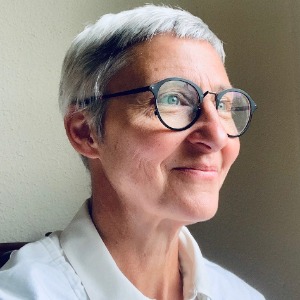.jpg?h=313&iar=0&w=556&rev=95515d94aac24dc4b5befcb4961c3771&hash=6BD00DC32A71485B6528D75D02E1E093)
Leader Lessons From The Pandemic: The Power of Good Communication
.jpg?h=313&iar=0&w=556&rev=95515d94aac24dc4b5befcb4961c3771&hash=6BD00DC32A71485B6528D75D02E1E093)
Crowe Global’s Art of Smart content is founded upon four pillars of success in decision-making: growth, diversity, boldness and innovation. It aims to help business leaders make smarter decisions. When the COVID-19 chaos hit, it impacted every organization in the world to some degree. Some leaders were well prepared to make smart decisions and pivot, or to re-write business plans; others were not.
We asked decision-makers from all over the globe, and across a variety of industries, to share their honest and insightful learnings from 2020. Here are their selected answers. They will hopefully serve as lessons to heed for fellow business leaders looking to make smarter decisions that have lasting value.
 |
Honor Wilson-Fletcher, Chief Executive Officer, British Exploring Society: “I wanted us to earn support and credit through being a part of the solution to the difficulties of lockdown, and a positive voice,” says Honor Wilson-Fletcher, Chief Executive Officer of the British Exploring Society, a youth development charity founded on the belief that challenging experiences can transform lives and empower young people. |
 |
Will Skinner, Chief Executive Officer, UFIT Singapore: “I would summarize 2020 as being like doing an MBA in three months,” says former professional rugby player Will Skinner, who is now Chief Executive Officer at UFIT Singapore, a fitness community. “I had some big gaps in my skill set that were exposed and I had to move fast to learn; now I have to find the ones that weren’t exposed before getting caught out again.
|
 |
Ann Lathrop, Marketing and Sales Leader, Crowe LLP (USA):
“For a marketing organization we normally have to think about clients and prospecting, but in a pandemic not many people are going to change their service provider, so, overnight, we focused primarily on our customers, to make sure we were taking good care of them,” says Ann Lathrop, Marketing and Sales Leader for Crowe LLP in the US. “We started a weekly digest and sent it out to clients, and, through that, we tried to create clarity with where we are going when the rest of the world was in chaos. That was 100 per cent the most important thing.
“Also, when you give your team a ‘north star’ of what they’re supposed to be doing they can create great work in the middle of adversity. People were shut in their homes and we have produced some of our best ever work.”
Crowe LLP titles updated as of 4/1/21 |
 |
Mark Baer, CEO, Crowe LLP (USA): “The coronavirus fallout forced us to reflect on our business models,” says Mark Baer, CEO at Crowe LLP. “We thought we were innovative as a firm. Then all of a sudden, when the world changed, it wasn’t possible to go back to how it was in the past. We’ve evolved in terms of our business models. We have seen foundational change in that area for the better. “But change is never easy. You could come up with many reasons why you shouldn’t change or evolve. My advice is: be bold, don’t be afraid of change. There are different ways of doing things.”
Crowe LLP titles updated as of 4/1/21 |

